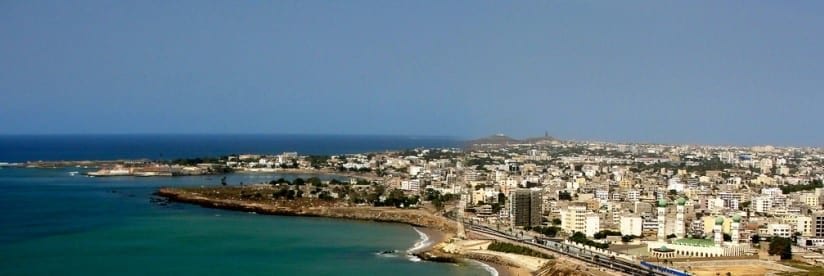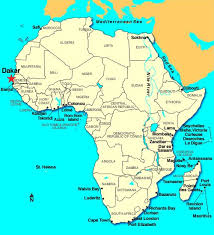
Closer and Closer
In September in Dakar the average temperature is 87-77 degrees F, October’s a bit warmer, and November, December slightly cooler. I can put my Alaskan sensibilities aside and live with the heat if I tell myself this is the new cool and cherish even the slightest summer breeze.
 I’m sitting on my back yard porch and looking up at the broad green leaves of our walnut tree and the cloudless blue, blue sky. The brown grass crunches with a shift in my position. My carefully watered veggies and flowers sway in green among brown grass and brown dirt. The air is still and warm. The thermometer on my phone says its about 73º F. I’m doing my best not to complain about the heat.
I’m sitting on my back yard porch and looking up at the broad green leaves of our walnut tree and the cloudless blue, blue sky. The brown grass crunches with a shift in my position. My carefully watered veggies and flowers sway in green among brown grass and brown dirt. The air is still and warm. The thermometer on my phone says its about 73º F. I’m doing my best not to complain about the heat.
One month from today I’ll be landing in Dakar, Senegal. On the western point of the Cape-Verde peninsula the westernmost coast in all of the old world. The name Senegal originated from the Wolof as Sunu Gaal, meaning “our boat”. Dakar points straight out at the Atlantic ocean, like the bow of the boat.
Through December I’ll be a part of the SIT study abroad program focusing on Global Security and Religious Pluralism. I chose the location long before deciding on the topic of study. (Here’s a link to check out their site, includes the syllabus, and more details about the program — https://studyabroad.sit.edu/programs/semester/fall-2018/sgr ) My reason for interest in Senegal is the musical and cultural connections to much of “American” musics and culture, specifically within Jazz and related genres. I initially was turned towards Senegal by a Cuban ethnomusicologist giving a lecture about the origins of the music of Cuba.
Because of Dakar’s location, much of the slave trade ships departed from it’s ports. When peoples captured and transported against their will, came to the various plantations in the Americas, they had nothing but the memories and the collective culture they knew. Through decades of slavery, oppression, and discrimination as shared experiences, as well as culture crossing between different groups of Africans, Native Americans, and Europeans, were incubated in the Americas, something unique arose. In calling jazz “America’s music,” we are claiming something that belongs to many many groups of people. Much like the concept of a universal civilization, notably championed by former Senegalese president and poet, Léopold Sédar Senghor, it belongs to everyone and no one. (For more on history, experiences of slaves and jazz, see notes)
I want to go deeper into the history, origins, and ancestry behind the music I know, and that have become so prevalent in culture around the world. Granted this whole program is not about music, and I’ll be learning much more than that, but these things are also important for understanding of a history seldom taught completely.
In approaching my trip I’ve gone through the gambit of emotions, ranging from excited to terrified and everything in between. I’ve completed a lot of that with Youtube videos of peoples experiences traveling and living in Senegal, and Google image searches of Senegal, Senegalese food, Senegalese fashion, Senegal animals etc. While I still don’t know what to expect, I am getting more comfortable with knowing I know what not to expect. (“The true wisdom is in knowing you know nothing” Thanks, Socrates)

I also want to address a big reason I get to go abroad, and that is the privilege that I’m granted because of the time and place I was born. With privilege comes responsibility, and I will be doing my best to learn and listen as much as I can and do all of this in good faith. I will do my best to be conscious about the person I am going into this, and the implications of that where I am going. (see Avoiding the White Savior complex) I am extremely grateful for the people who have instilled in me a sense of curiosity, and value of education and a global world view.
I’ll be sharing a blog with pictures and my experiences as I study abroad. I leave for Dakar on August 25. I’ll post updates on posts on Facebook, or subscribe above to receive email notifications when I post. Stay Tuned!
Things I found Interesting in Research
Barracoon: The Story of the Last “Black Cargo,” a posthumous, previously unpublished nonfiction work by Zora Neale that details the life of Oluale Kossula — also known by the slave name of Cudjo Lewis who was brought to the American south on the last slave cargo ship, and lived through the civil war and reconstruction. Cudjo passes through Gorée island off the coast of Senegal.
Ken Burns Jazz – comprehensive 19 part Documentary on the history of American Jazz music. Worth a watch if you’re a jazz nerd, and or if you think Kenny G is good. (If you think Kenny G is good kindly leave this site)
Information on Léopold Sédar Senghor
https://en.wikipedia.org/wiki/L%C3%A9opold_S%C3%A9dar_Senghor
White Savior Complex and how it is propagated systemically in the UShttps://matadornetwork.com/change/4-ways-americans-taught-white-savior-complex-can/